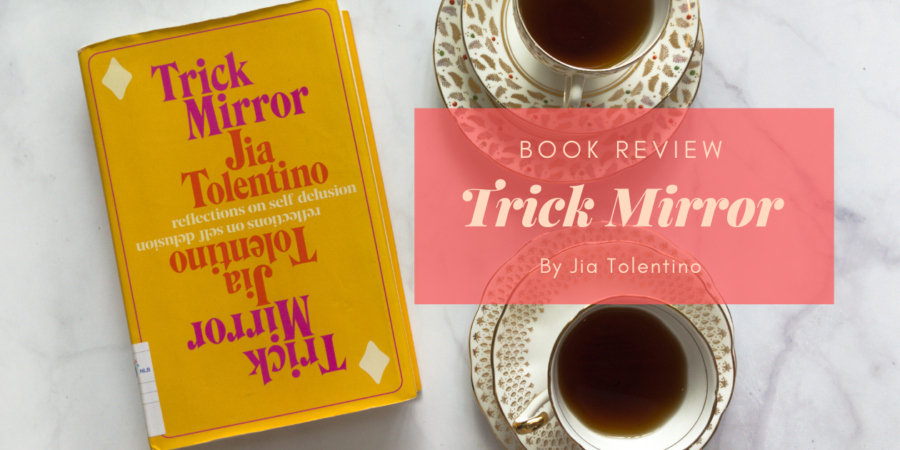Finding a copy of Trick Mirror in the library is like finding a needle in a haystack. Each library has a copy but that copy seems to be perpetually borrowed and I wasn’t willing to pay to reserve a copy. So when I found out that my local library had a copy available, I decided to borrow it even though I was looking primarily for comfort reads. No regrets because these essays were all interesting.
Trick Mirror is a book of nine essays of cultural criticism, consisting of:
- The I in Internet: Tolentino explores her relationship with the internet, from its fantastic first impression to the way it’s forced us to continually put on a self for show. The conclusion is depressing, that “the internet is governed by incentives that make it impossible to be a full person while interacting with it” and although I’m not that pessimistic yet, recent events in certain online spaces are pushing me there.
- Reality TV Me: A personal essays exploring Tolentino’s time on a reality TV show and how what she remembers of that period may not coincide with what she sees in recorded episodes of the show.
- Always Be Optimising: An exploration of how various aspects of culture (barre? and some other stuff?) lead women to a never-ending work of constantly optimising themselves.
- Pure Heroines: The most literary of all essays, Tolentino goes through beloved female heroines and examines their relationship to the modern woman. It’s fascinating although I’m not too sure what to feel about the sudden addition of the race dimension towards the end – I know that it’s relevant to her, but it feels abrupt.
- Ecstasy: Tolentino compares religion (specifically, the American mega-Church version of Christianity) to doing drugs.
- The Story of a Generation in Seven Scams: From actual scams like Fyre Festival so “I’m not sure if this is actually a scam” social media (specifically, Facebook) and Amazon, Tolentino tries to define a generation through these pervasive forces.
- We Come from Old Virginia: Sexism and journalism meet one another as Tolentino examines her own history and the reporting in the infamous article “A Rape on Campus”.
- The Cult of the Difficult Woman: Sometimes, women are criticised for valid reasons. Sometimes, they are criticised just because they are women. How do we know which is which and how does the cult of the difficult make this distinction even harder to see?
- I Thee Dread: Tolentino explores her feelings towards weddings.
Out of the nine essays, I most enjoyed those that had a personal component – Reality TV Me, We Come from Old Virginia, and I Thee Dread. Tolentino does a marvellous job connected her story to the society’s – no man is an island and she is at her best when she shows how that’s the case for her.
As for the essays which are less self-reflective, I enjoyed them but they also had a tendency to wander a bit too much. Taking Pure Heroines as an example, I think there’s a lot to unpack in the one topic of how fictional heroines inform our idea of self and how that in turn, affects the way women characters are written today, but the sudden turn to the presence of non-Caucasian characters in fiction felt abrupt and rather jarring. I think that could have been an essay all by itself and to add that in as a smaller segment did not do the topic justice. This was the example that stood out to me, but I noticed that Tolentino has the tendency to dip into other topics in her other essays that didn’t have a strong personal thread running through it, resulting in a slightly scattered effect.
After reading this, I can see why people are hailing her as a “voice of her generation”. She definitely seems to be an accurate representation of the complexities American women of her generation, especially in her relationship to the Internet and society. At least, that’s how it comes off to me, someone who didn’t grow up in America but is exposed to a lot of the culture through the English-speaking Internet.
Overall, this was a great book of essays on American and Internet culture that I really enjoyed reading. You’ve probably already heard of this book and if you feel even the slightly bit of interest in it, I’d recommend looking for a copy.
